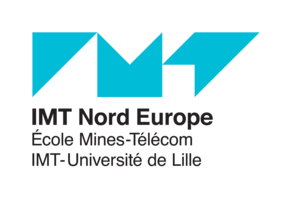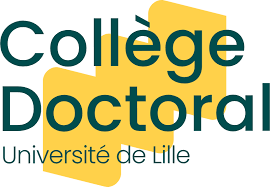Individual Examining Committee (CSI)
The French Order of 26 August 2022 on doctoral training has made it mandatory for students to attend an individual examining committee (CSI) prior to any annual registration until the end of their studies. The doctoral school has a common framework for all doctoral students
The purpose of the CSI meetings is to offer an external, yearly viewpoint on the thesis project, assisting the doctoral candidate and their supervisor in successfully completing their studies. The members of the CSI provide doctoral candidates with advice and guidance on their research, training, and career development, with the aim of helping them advance in their respective fields. Doctoral candidates should receive support for all kinds of professional and relational issues from impartial supervisors, including the thesis supervisor, research unit director, and doctoral school management
The interview consists of three steps: work presentation and discussion, interview with the doctoral candidate alone, and interview with the supervisor alone
If the doctoral candidate encounters significant difficulties during their studies, the CSI committee is responsible for identifying these issues and reporting them to the doctoral school. The committee has the authority to make proposals to resolve the problems and provide recommendations, which will be documented and attached to the candidate's file maintained by the school management
The membership list of the CSI must be proposed jointly by the doctoral candidate and their thesis supervisor, and this proposal must be consulted with the relevant Doctoral Study Faculty (DED). Once the proposal is finalised, it should be submitted to the doctoral school for approval, along with the proposed date of the meeting. The CSI is formed for the duration of the doctoral studies, but its membership can be modified if necessary, upon consultation with the school. Participating in the CSI does not contradict being a member of the thesis defence examining committee. However, members of the CSI are not permitted to be external members of the thesis defence examining committee. They can, however, be examiners or the chair of the thesis defence examining committee
The composition of the committee must be communicated to the Doctoral School at least 15 days before the scheduled date of the CSI meeting
The CSI is made up of at least:
- one external member from outside the institution and the lab, who is a specialist in the relevant field
- one external member who is not specialised in the relevant thesis research field (this member must be from a different field of expertise to that of the doctoral candidate, not associated with the lab, etc.)
The thesis supervisor is a guest member of the committee.
- The DED or the doctoral school participates in thesis committee meetings organised in the case of a derogatory registration procedure (going beyond the third year; see below in the "How the CSI Works" tab)
At least one of the two external members must be awarded with habilitation (HDR)
External members of the CSI are not involved in overseeing the doctoral candidate's work or in broadcasting the results (publications, etc.)
The committee is chaired by a member from outside the institution. This member is responsible for drafting and signing the meeting report
The committee can now easily include outside members through the use of videoconferencing
The CSI report must be submitted to the doctoral school prior to every registration renewal. This applies even in the case of a derogatory procedure for registration for a fourth full year (except for defences in the first quarter of the N+1 calendar year). It also applies to subsequent registrations. This is why the CSI meeting must be held a few weeks prior to registration in the second year and before each subsequent registration until the completion of doctoral studies (preferably before 15 September of each year)
The research group will cover all the costs of organizing the committee meeting
In the case of a derogatory procedure for registration for a fourth full year or beyond, the committee must give priority consideration to the reasons for the delay in the progress of the thesis, the planning of the thesis defence, the doctoral student's situation, funding and career prospects
You should allow at least 1.5 hours for each CSI meeting. It consists of three steps: work presentation and discussion, interview with the doctoral candidate alone, and interview with the supervisor alone.
The committee assesses training conditions and advances in research. Its members are devoted to identifying and addressing any form of conflict, discrimination, moral and sexual harassment, sexism, breach of ethics or scientific integrity, and conflict of interest. If any issues are identified, the school management will be alerted immediately. As mediation is initiated, the confidentiality of discussions held during the meeting will be ensured
The meeting closes with conclusions and recommendations
The CSI President will draw up a report within 15 days using the mandatory form available at the top of this page
All sections of the form must be filled out
For derogatory procedure registrations (fourth year or beyond), the sections must be filled out with particular attention to detail and the planned date for the thesis defence must be specified
The completed report is then sent to the doctoral candidate and their thesis supervisor for signature. Finally, the document is submitted to the DED and then to the head of the doctoral school
The school cannot authorise any renewal of registration without all parties signing the CSI report
All reports will be imported onto the doctoral candidate's profile on ADUM
Practical tips

For the ISC meeting - Please note: no administrative registration without a CSI report
You must meet your ISC at least once a year before each new registration until the end of your doctorate.
To help you understand, here are the steps in brief:
1) I meet my ISC (ideally between April and October)
2) I wait for the CI's report and opinion
3) I re-register with the EG and administratively (before 15 December).
- The ISC's opinion is imperative and necessary for your re-registration to be processed.
- Make sure you anticipate the meeting and the ISC report so that you can re-register before 15 December.
Please note: if you register for the first time late, between January and April, you must hold your ISC meeting before December of the same year.
The report will reflect the short time since your registration. The members of the ISC will take this into account.
Administrative procedures for doctoral students:
1) Submission of the composition of your ISC (which will be validated by your thesis, laboratory and doctoral studies departments) to the EG (sec-edsmre(a)univ-lille.fr) at least 15 days before the ISC.
2) Submission of the ISC report validated by the ISC Chair, your thesis, laboratory and doctoral studies departments and the EG management in the ‘documents to be attached’ tab on your ADUM profile.
NEW: IF YOU ARE ORGANISING YOUR 1ST CSI IN 2025

These updated forms are for you!
The membership form includes a self-assessment questionnaire on links of interest, enabling prospective external ISC members to examine any links they may have with those involved in a doctoral project and thus help to guarantee the impartiality and independence of the committee.
ISC composition form (WORD,
ISC report form (WORD,
English version
ISC composition form (WORD,
ISC report form (WORD,
IF YOU ARE ORGANISING YOUR 2ND OR SUBSEQUENT CSI IN 2025
In French
- Composition of the CSI Form (in French, Word, 214 kB)
- CSI Report Form (in French, Word, 262 kB)
In English
- Form "composition du CSI (WORD, 214 KB)
- Form "rapport du CSI (WORD, 262 KB)




